![Feldman, Morton (Judith Wegmann): Triadic Memories [2 CDs] (ezz-thetics by Hat Hut Records Ltd) Feldman, Morton (Judith Wegmann): Triadic Memories [2 CDs] (ezz-thetics by Hat Hut Records Ltd)](https://www.teuthida.com/productImages/misc4/29557.jpg)
The second of four connected solo piano works by Morton Feldman, Triadic Memories is about that reality, the acoustic space created by the piano's strings and soundboard, as Feldman attempted to expand the temporal frame of his music, heard here in Judith Wegmann's 2019 recording, where thThe second of four connected solo piano works by Morton Feldman, Triadic Memories is about the acoustic space created by the piano's strings and soundboard, as Feldman worked to expand the temporal frame of his music, heard her in Judith Wegmann's 2019 studio recording where that space is revealed by a magnificent Bosendorfer 280VC piano.at space is revealed by a magnificent Bosendorfer 280VC piano.
In Stock
Quantity in Basket: None
Log In to use our Wish List
Shipping Weight: 4.00 units
EU & UK Customers:
Discogs.com can handle your VAT payments
So please order through Discogs
Sample The Album:
Morton Feldman-composer
Judith Wegmann-piano
Click an artist name above to see in-stock items for that artist.
UPC: 752156102526
Label: ezz-thetics by Hat Hut Records Ltd
Catalog ID: ezz-thetics 1025-2
Squidco Product Code: 29557
Format: 2 CDs
Condition: New
Released: 2020
Country: Switzerland
Packaging: Cardboard Gatefold
Recorded at Groovefactory, in Bern, Switzerland, in December, 2019, by Simon Farkhauser.
"Triadic Memories is the second of four solo piano works that Morton Feldman (1926-87) wrote during the last decade of his too-short life. The first, Piano (1977), is a densely abstract work, opening a creative portal through which Feldman chose not to go. Triadic Memories (1981) and For Bunita Marcus (1984) followed, each well over an hour long, part of a deliberate attempt by Feldman to expand the temporal frame of his music. Finally came the luminous Palais de Mari (1986), briefer - about twenty-five minutes - a distillation of Feldman's art.
The piano was at the centre of Feldman's musical world. Even when he was writing for other instruments he would work at the piano because, as he said in a 1975 interview that appears in Walter Zimmermann's book Desert Plants, 'it slows me down and you can hear the time element much more, the acoustical reality.' Perhaps more than any of his other piano music Triadic Memories is about that reality, the acoustic space created by the piano's strings and soundboard, and in Judith Wegmann's recording that space is within a magnificent Bösendorfer 280VC piano.
In the score Feldman instructs that the piano's sustaining pedal should be held halfway down throughout the piece, as if the resonance of the instrument is intended to become a means of remembering the music. For a performance in Buffalo on 18th March 1982 Feldman explained the use of the pedal to the audience, joking that he didn't want them to think that the pianist, Aki Takahashi (the work's co-dedicatee, with Roger Woodward), was 'one of those pianists that never take the pedal off'. Instead, he said, his intention was to create a sort of musical 'gesso', like the ground with which painters prime their canvasses. Specifically, Feldman was thinking of the way that Cy Twombly would scratch graffiti-like markings into a gesso 'where the tint changed ever so slightly.' Feldman wanted a tonal ground and took the idea of 'a little gesso' from Twombly, making music that, as he put it, is 'on this very precarious gesso smudge, so to speak.'
A 'gesso', a 'smudge', a 'memory'; so why 'Triadic Memories'? Perhaps it has something to do with Feldman's preoccupation with his position in music history. By the early 1980s the minimalist composers, especially Steve Reich and Philip Glass, had become the most fashionable figures in new music, displacing Feldman and John Cage from the centre of the downtown New York scene, and Feldman was aware of this. In a 1980 interview with Cole Gagne and Tracy Garas he told them that 'if you think I can sit down and write a piece and not be worried about Steve Reich, you're nuts. I worry about these people. I worry about strong alternatives. It is a contest.' Two years later, in a lecture in Toronto, he was talking about the competition again: 'I never really thought that I was gonna bring back a diatonic pattern. I'm not Phil Glass.'
Yet there, right at the beginning of Triadic Memories is a 'diatonic pattern': a G minor triad, the G and B flat high in the right hand, the D deep in bass. But because Feldman is Feldman, and not just a contestant, he smudges the triad, blurring the G with an A and a G sharp, the D with a C sharp. And, because this is music about the piano, he slowly moves the pattern across the entire range of the keyboard, drawing the hands together and then parting them again. Less than four minutes into Judith Wegmann's performance not only have we heard the 'acoustical reality' of the instrument but we have also lost any sense of a diatonic pattern.
There is repetition too, but this is not the minimalist repetition of Glass and Reich, in which patterns accumulate to articulate architectonic forms. Instead in Triadic Memories Feldman will repeat a short figure because he wants to hear it again, to hear how it sounds in its own resonance; or he will transpose it into a different octave to hear how it changes in a new register of the piano; or he will minutely vary the rhythms of the figure, to hear the effect of time on harmony. Once he has heard enough he moves on. In a lecture in Darmstadt in 1984 in which he was mostly talking about his Second String Quartet he said three things that could equally apply to Triadic Memories. How does one thing lead to another in this music? 'I'm doing it one way, and then I'm doing it another way, with a different kind of focus.' And why does the music go on? 'I don't have an anxiety that I've got to stop.' Most tellingly, 'my music is handmade': there is no system, only listening.
'Triadic' music that is not triadic; 'memories' (repetitions) that are not memories. This is a contradictory music in which nothing is quite as we remember it, music whose only subject is its resonance, first in the piano and then in our consciousness."-Christopher Fox, 7th June 2020

The Squid's Ear!
Artist Biographies
• Show Bio for Morton Feldman "Morton Feldman was born in New York in 1926 and died there in 1987. Just like Cage, a close friend, he was an American composer - an American artist - an American in the true sense of the word. He identified himself by differentiating his views on composition from those of his colleagues in Europe. He was proud to be an American because he was convinced that it enabled him the freedom, unparalleled in Europe, to work unfettered by tradition. And, he was an American also in what may have been a slight inferiority complex in the face of cultural traditions in Europe, something he proudly rejected and secretly admired. Like any true artist, Feldman was endowed with a sensitivity for impressions of a wide variety of sources, literature and painting in particular. His affinity to Samuel Beckett has enriched music literature by a unique music theatre piece, Neither, and two ensemble works. His friendship with abstract impressionist painters gave birth to a range of masterpieces, Rothko Chapel in particular. But even the knotting of oriental rugs gave Feldman musical ideas (The Turfan Fragments). To the question as to why he preferred soft dynamic levels, he replied: "- Because when it's loud, you can't hear the sound. You hear its attack. Then you don't hear the sound, only in its decay. And I think that's essentially what impressed Boulez . That he heard a sound, not an attack, emerging and disappearing without attack and decay, almost like an electronic medium. Also, you have to remember that loud and soft is an aspect of differentiation. And my music is more like a kind of monologue that does not need exclamation point, colon, it does not need..." Feldman also had an intriguing reply up his sleeve when it came to answering the question why he composed in the first place: "You know that marvellous remark of Disraeli's? Unfortunately, he was not a good writer, but if he was a great writer, it would have been a wonderful remark. They asked him whydid he begin to write novels. He said because there was nothing to read. (laughs). I felt very much like that in terms of contemporary music. I was not really happy with it. It became like a Rohrschach test". More than twenty years since his death, Morton Feldman's music is as alive as ever." ^ Hide Bio for Morton Feldman • Show Bio for Judith Wegmann "Swiss pianist Judith Wegmann started to play the piano at the age of six. Shereceived her education at the famous Jazz School of Lucerne and the Swiss Jazz School of Bern with Roberto Domeniconi, Olivier Truan and ChristyDoran, focusing on Modern Jazz and Free Improvisation. Subsequently she earned a Bachelor and a Master's degree with highest distinctions in Classical Studies(Pedagogy and Piano) from the Music Universities in Neuchâtel and Lucerne. She continued studying with renowned musicians including Sebastian Risler, Karl-Andreas Kolly, Tobias Schabenberger, and Gerardo Vila, and attended Master Classes in Switzerland, France and Austria. Recently,she completed a second Master's degree at the Conservatory of Basel (with Fred Frith and Alfred Zimmerlin), concentrating on free improvisation and Contemporary Music. As a classical pianist Judith performs on stage on a regular basis and in different chamber music formations. Her ability to switch between different genres allows her to engage in classical, contemporary as well as improvisation-based projects. Judith frequently conceptualizes concert programs, taking management responsibilities from the early stages of planning to the public performance. Her concerts have been performed in Switzerland as well as abroad - for example "Bach, Schumann et l'ombre de Nico" with Alexandre Caldara (F/CH, 2006) or the performance series "Outdoor-Dialoge" with Claudia Bucher (2009/10). Cross-disciplinary projects are an important aspect of her work. Collaborations with composers, visual artists and writers foster new approaches and paths, as in"Schwarzberg" with Swiss composer Werner Bärtschi and Arno Camenisch (2011). She was hired bythe "Kunsthalle Basel" for the widely celebrated Swiss premiere of afro-american composer Julius Eastman's "Songs for a mad King"in 2013. In thesame year she participated in the production "Manon -Soundtrack des Lebens" for the "young stage" of the theater Biel-Solothurn. Further projects are planned for the near future. In 2011 and 2015 she was awarded a distinguished grant "Förderpreis" by the canton of Zug, Switzerland, which supported some of her most innovative projects. In 2013 she founded the New4Art Ensemble. Her work with this ensemble was awarded a prize by the city of Biel "Werkbeitrag". This award she also received in the years 2014 and 2015. Judith has been a member of the board of the Society of Free Improvisation ("Werkstatt für die freie Improvisierte Musik") in Bern since 2015 and is head of their"open workshop-". In 2017 her first Solo CD was released by HatHut records,which received a positive international reiew." ^ Hide Bio for Judith Wegmann
7/9/2025
Have a better biography or biography source? Please Contact Us so that we can update this biography.
7/9/2025
Have a better biography or biography source? Please Contact Us so that we can update this biography.
Track Listing:
CD1
1. Triadic Memories (Beginning) 1/2 26:08
2. Triadic Memories (Beginning) 2/2 27:28
CD2
1. Triadic Memories (Conclusion) 33:41
Hat Art
Compositional Forms
Avant-Garde
Piano & Keyboards
Solo Artist Recordings
Ambient, Minimal, Reductionist, Onky Sound, &c.
Staff Picks & Recommended Items
New in Compositional Music
Top Sellers for 2020 by Customer Sales
Search for other titles on the label:
ezz-thetics by Hat Hut Records Ltd.

![Feldman, Morton (Judith Wegmann): Triadic Memories [2 CDs] (ezz-thetics by Hat Hut Records Ltd) Feldman, Morton (Judith Wegmann): Triadic Memories [2 CDs] (ezz-thetics by Hat Hut Records Ltd)](https://www.teuthida.com/productImages/full/29557.Full.jpg)



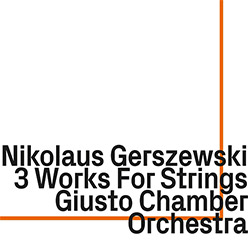

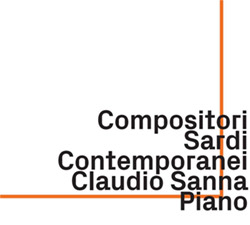
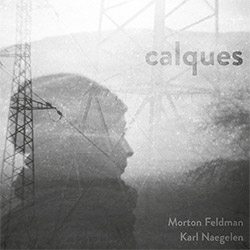
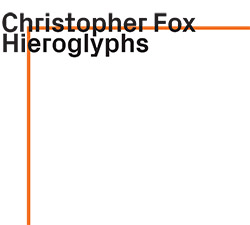
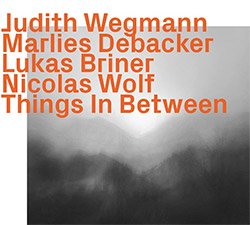
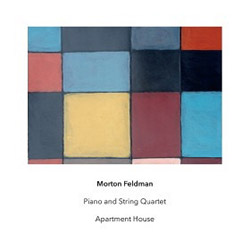
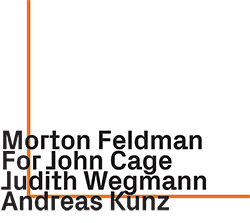
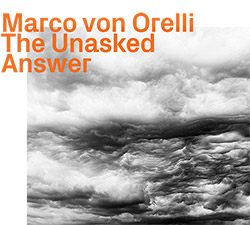
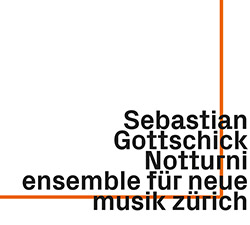
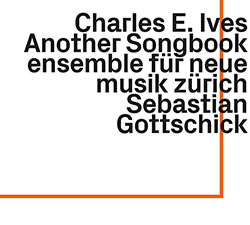
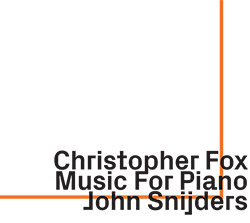
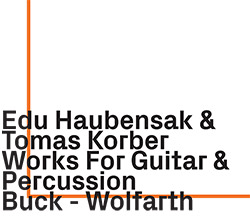



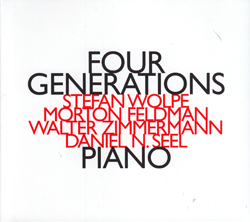
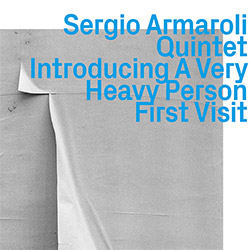

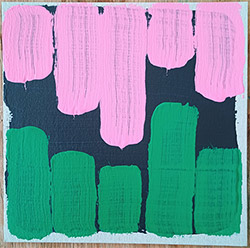

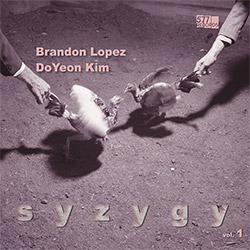
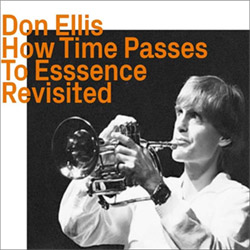




![BlueRing Improvisers: Materia [2 CDs]](https://www.teuthida.com/productImages/misc4/36513.jpg)








![Wheelhouse (Rempis / Adasiewicz / McBride): House And Home [VINYL]](https://www.teuthida.com/productImages/misc4/36462.jpg)
![+DOG+: The Light Of Our Lives [2 CDs]](https://www.teuthida.com/productImages/misc4/36009.jpg)


![Parker, Evan / Jean-Marc Foussat: Insolence [VINYL]](https://www.teuthida.com/productImages/misc4/36398.jpg)










![Deupree, Jerome / Sylvie Courvoisier / Lester St. Louis / Joe Morris: Canyon [2 CDs]](https://www.teuthida.com/productImages/misc4/36404.jpg)



![Eventless Plot | Haarvol: The Subliminal Paths [CASSETTE + DOWNLOAD]](https://www.teuthida.com/productImages/misc4/36232.jpg)










![Eventless Plot | Francesco Covarino: Methexis [CASSETTE + DOWNLOAD]](https://www.teuthida.com/productImages/misc4/36231.jpg)



![Das B (Mazen Kerbaj / Mike Majkowski / Magda Mayas / Tony Buck): Love [VINYL]](https://www.teuthida.com/productImages/misc4/36329.jpg)


![Eternities: Rides Again [CASSETTE]](https://www.teuthida.com/productImages/misc4/36247.jpg)
![Lopez, Francisco: Untitled (2021-2022) [2 CDs]](https://www.teuthida.com/productImages/misc4/36438.jpg)






![Money : Money 2 [2 CDs]](https://www.teuthida.com/productImages/misc4/35894.jpg)




![Klinga, Erik: Elusive Shimmer [VINYL]](https://www.teuthida.com/productImages/misc4/36258.jpg)
![CHANGES TO blind (Phil Zampino): Volume 9 - I Wave on a Fine Vile Mist [CD + DOWNLOAD]](https://www.teuthida.com/productImages/misc4/36061.jpg)

![Wallmart / Rubbish: Asset Protection [split CD]](https://www.teuthida.com/productImages/misc4/35900.jpg)


![+Dog+: The Family Music Book Vol. 5 [2 CDs]](https://www.teuthida.com/productImages/misc4/35897.jpg)
![Kuvveti, Deli : Kuslar Soyledi [CASSETTE w/ DOWNLOAD]](https://www.teuthida.com/productImages/misc4/36107.jpg)

![Brown, Dan / Dan Reynolds: Live At The Grange Hall [unauthorized][CASSETTE]](https://www.teuthida.com/productImages/misc4/36245.jpg)








![Palestine, Charlemagne / Seppe Gebruers: Beyondddddd The Notessssss [VINYL]](https://www.teuthida.com/productImages/misc4/36206.jpg)
![Palestine, Charlemagne / Seppe Gebruers: Beyondddddd The Notessssss [NEON GREEN VINYL]](https://www.teuthida.com/productImages/misc4/36207.jpg)

![Laubrock, Ingrid: Purposing The Air [2 CDs]](https://www.teuthida.com/productImages/misc4/35639.jpg)

![Yoko, Ono / The Great Learning Orchestra: Selected Recordings From Grapefruit [2 CDs]](https://www.teuthida.com/productImages/misc4/35841.jpg)









![Zorn, John / JACK Quartet: The Complete String Quartets [2 CDs]](https://www.teuthida.com/productImages/misc4/35609.jpg)

![Lonsdale, Eden: Dawnings [2 CDs]](https://www.teuthida.com/productImages/misc4/35480.jpg)



![Sorry For Laughing (G. Whitlow / M. Bates / Dave-Id / E. Ka-Spel): Rain Flowers [2 CDS]](https://www.teuthida.com/productImages/misc4/35985.jpg)

![Rolando, Tommaso / Andy Moor : Biscotti [CASSETTE w/ DOWNLOADS]](https://www.teuthida.com/productImages/misc4/36106.jpg)


![Electric Bird Noise / Derek Roddy: 8-10-22 [CD EP]](https://www.teuthida.com/productImages/misc4/35970.jpg)








![Elephant9 : Mythical River [VINYL]](https://www.teuthida.com/productImages/misc4/34624.jpg)



![Elephant9 with Terje Rypdal: Catching Fire [VINYL 2 LPs]](https://www.teuthida.com/productImages/misc4/35355.jpg)
![Deerlady (Obomsawin, Mali / Magdalena Abrego): Greatest Hits [VINYL]](https://www.teuthida.com/productImages/misc4/34876.jpg)







![Surplus 1980: Illusion of Consistency [CD]](https://www.teuthida.com/productImages/misc4/35069.jpg)
![Staiano, Moe: Away Towards the Light [VINYL + DOWNLOAD]](https://www.teuthida.com/productImages/misc4/35037.jpg)
![Coley, Byron: Dating Tips for Touring Bands [VINYL]](https://www.teuthida.com/productImages/misc4/17906.jpg)

![Lost Kisses: My Life is Sad & Funny [DVD]](https://www.teuthida.com/productImages/misc4/lostKissesDVD.jpg)